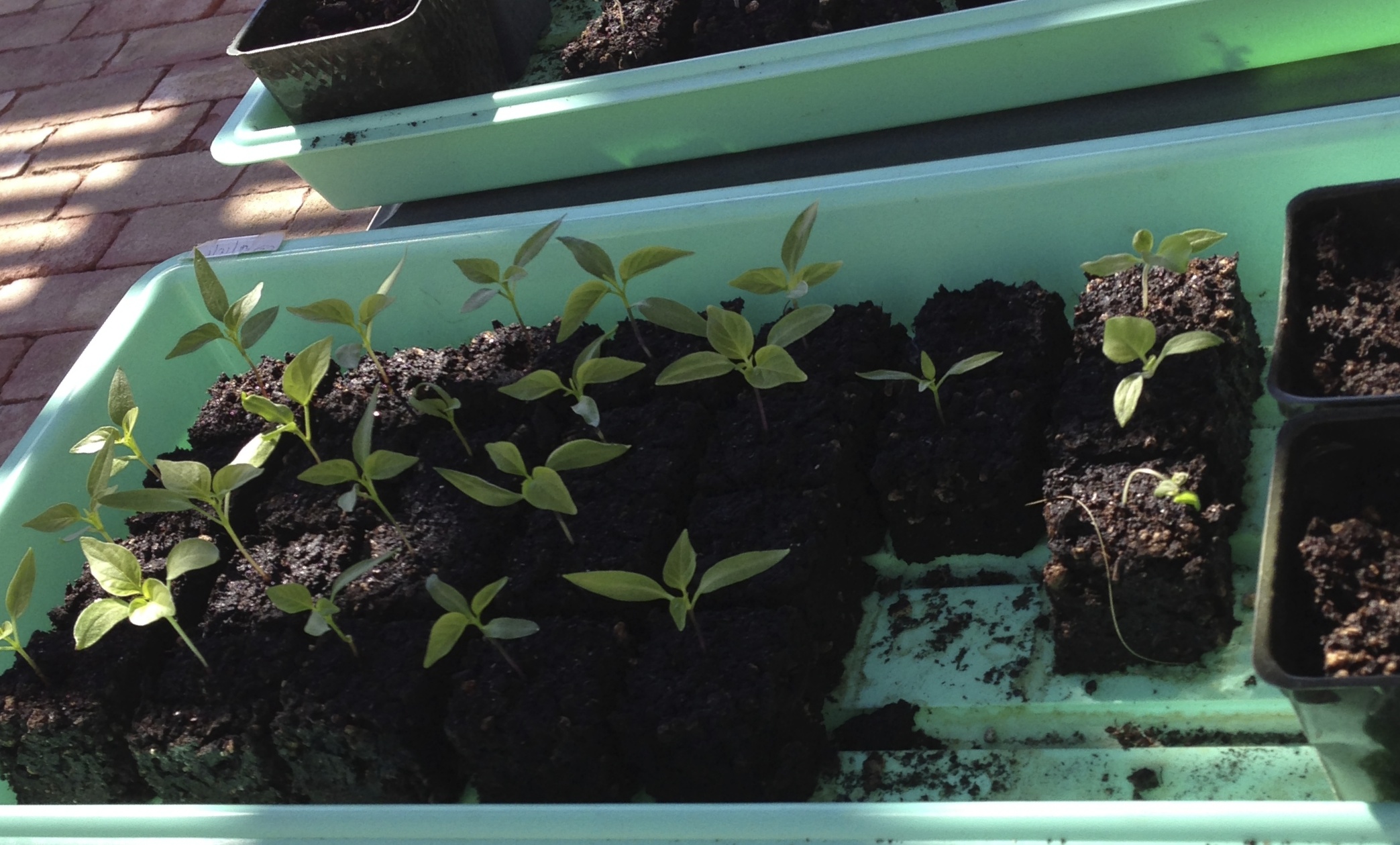Sowing Seeds and Starting Plants at Home
Starting plants at home gives a tremendous advantage of having a variety of plants that are not available in the nurseries. It is also much cheeper than buying plants specially when you need large number or plants.
Seeds can be started in containers/soil blocks or directly in ground. Sowing seeds in containers may have a higher germination rate and will give you a head start when weather is appropriate for planting in ground. Seeds and young plants after germination will require some attention for about 4-8 weeks depending on the varieties of plants and weather conditions at the time of sowing.
Root vegetables will perform better when directly sown in ground.
Seeds can be sown for vegetables, annual or perennial flowers and occasionally trees
Seeds can be started in containers/soil blocks or directly in ground. Sowing seeds in containers may have a higher germination rate and will give you a head start when weather is appropriate for planting in ground. Seeds and young plants after germination will require some attention for about 4-8 weeks depending on the varieties of plants and weather conditions at the time of sowing.
Root vegetables will perform better when directly sown in ground.
Seeds can be sown for vegetables, annual or perennial flowers and occasionally trees

Seeds in containers
Any container can be used for growing seeds, such as egg carton, yogurt cups, berry boxes, or reuse nursery containers.
Put potting mix in the container, make a hole with your finger or a stick depending on size of the seed. Drop 1 or 2 seeds in each hole.
for very small seeds just spread a few seeds on top of the potting mix and then spread a fine layer of potting mix or seeding mix on top of the seeds.
Any container can be used for growing seeds, such as egg carton, yogurt cups, berry boxes, or reuse nursery containers.
Put potting mix in the container, make a hole with your finger or a stick depending on size of the seed. Drop 1 or 2 seeds in each hole.
for very small seeds just spread a few seeds on top of the potting mix and then spread a fine layer of potting mix or seeding mix on top of the seeds.

Seeds in soil blocks
Soil block maker is required for this process. There are few advantages of sowing seeds in soil blocks. No container is required (more environmentally friendly). Also, the plants do not get root bound.
Soil block maker is required for this process. There are few advantages of sowing seeds in soil blocks. No container is required (more environmentally friendly). Also, the plants do not get root bound.
Seeds directly in ground
Soil needs to be replenished with compost and ground leveled.
According to size of the seed, make a hole in the ground (the depth of the hole may be mentioned on the seed packet).
Watering should be daily, either with a fine spray watering can, hose with fine shower or with drip irrigation that could include fan-micro-sprayers. During dry and windy weather care needs to be taken that the soil dose not get too dry therefore the area may need to be watered 2-3 times a day. Superficial watering is more important during the germination to ensure that seeds do not get completely dried out.
Soil needs to be replenished with compost and ground leveled.
According to size of the seed, make a hole in the ground (the depth of the hole may be mentioned on the seed packet).
Watering should be daily, either with a fine spray watering can, hose with fine shower or with drip irrigation that could include fan-micro-sprayers. During dry and windy weather care needs to be taken that the soil dose not get too dry therefore the area may need to be watered 2-3 times a day. Superficial watering is more important during the germination to ensure that seeds do not get completely dried out.